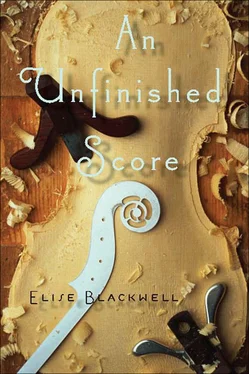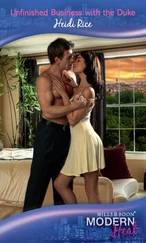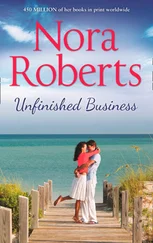“Too bad Suzanne can’t go with you,” Petra says as she enters the kitchen. “But I need her to go to the Children’s Hospital in Philly with me.”
Ben glares at her “You’re not honestly considering going through with that, are you?”
Suzanne readies herself, fingers tense around the edge of her seat, for Ben’s lecture on deaf culture and the dangers of rupturing Adele’s social and cultural maturation. She waits for him to interrogate the meaning of a normal life, to emphasize the profundity of the deaf, to expound on the intricacies and beauty of American Sign Language, to argue that a full deaf life is better than a half-assed hearing one.
She asks herself whether she’ll respond out loud: You think of her as a theory and not as a person . Or: Petra is the parent .
But Ben is tired. The parallel lines that run across his forehead groove more deeply than usual, and his face looks heavy.
Petra smiles. “So I need Suzanne next week.”
Petra knows that she doesn’t want to go to Charleston, not as long as she lives. They have talked about it a lot, maybe too much. But even when they discuss it, Charleston is a word Suzanne avoids saying, a name that makes her wince when it is spoken by someone else, particularly if the syllables are pronounced by a native, even by Ben — the first one drawled and the second clipped. For her it is a word that says, You are poor; you are unfit; you do not belong . And she can admit this: it is the city where she lost her baby.
She understands why people love Charleston’s cobblestones and painted houses and marsh grass and salt air, people who view the bay from swinging chairs and admire the water rolling in to smother the vaguely rotten odors that leak from the earth when the tide is low. Charleston has things people want: galleries and festivals and good restaurants and money and ocean access and wraparound porches and flower boxes and the funky haunts made possible by the presence of art students, of white kids with dreadlocks.
People love the Charleston that cleans up its long history in the telling, makes it quaint, wears it as style. If the listener is not the Civil War aficionado the local speaker hopes for, the palmetto trees that saved the American Revolution can be mentioned, or the conversation can settle on the city’s notoriously promiscuous and quite possibly bisexual female pirate. But across the time Suzanne lived there, she never could learn the city’s secret speech codes — what things really meant, whether an invitation to drop by a home was intended or merely mouthed, whether a question about her musical preferences was meant to be answered in four words or forty. But she learned on her first visit one of the harshest codes: in Charleston the well-born make you say aloud things they already know.
“Your mother was Italian, right?” Ben’s mother asked, the I long, the color on her cheeks artificial. And she said Realtor with a tone that made clear she already knew that Suzanne’s mother wasn’t the successful model that the affluent tolerate at their cocktail parties but the kind who scrape by between cash-flow problems, selling starter homes and condominiums that are cheaper to buy than to rent — the kind of places where Suzanne and her mother also lived. Still his mother asked, “So she must have done quite well?”
“And what does your father do?” asked Ben’s sister, Emily, knowing already the most generous thing Suzanne could say was that he no longer worked. “Early retirement?” Emily pressed, cocking her head, her tone pleasant. Suzanne nodded, though everyone in the room knew the words closest to the truth were unemployment and disability payments .
Suzanne searched for sympathy in their eyes, some softening of facial lines or ease in their shoulders — something to suggest that they were, after all, nice people. She looked to Ben, who knew the language, but he was looking to the mantel, at the photo of his father standing in front of the small, fast yacht he had gone down on.
It was his brother who saved her, walking into the room with a surfboard. “Sort of like Ben,” Charlie said. “And sort of like me. You’ve done a wonderful job, Mother, raising a composer and a beach rat, neither of whom has ever worked for money.”
His mother passed Suzanne a plate of benne wafers. “You’re very thin,” she said, and Suzanne couldn’t tell if the sentence was a compensatory compliment or recrimination.
Ben walked toward the picture of his father, rested his fingertips on the mantel in front of it. “Suzanne and her father are very different people,” he said finally, after she had the cookie in hand, napkin underneath to catch the sesame seeds, no longer in need of rescue.
Charlie grinned at her, swiped his streaked hair from his eyes, young person to young person, bonded by similar tastes in popular music and a common enemy.
Ben cases his cello. “Suzanne?”
Suzanne hates that they have so many of their few conversations in front of Petra, but this time it feels like a mercy. “I guess I’ll stay up here. I did tell Petra I’d go to Philly with her, and I should see my dad. Petra will give me an excuse not to stay very long. That is, if you don’t mind going alone.”
He shrugs. “No, that’s fine. Probably easier since it’ll just be a few days.”
“Stay as long as you need to,” she says, wondering if she can use his trip as a way to do what she probably has to do, which is to find out what Alex’s wife wants from her.
When she thinks of her— Alex’s wife —of how angry she could be, of what she might be capable of, Suzanne feels her whole world pulling away like a receding tide sucking sand back into the ocean. Be prepared to lose everything , she tells herself, and wonders how much she has to lose.
On Friday after rehearsal, Suzanne waits for Adele to get out of school, and together they bake a cake in the hot kitchen. Adele’s choice is odd for a child: an Italian chiffon cake made with dark green olive oil and orange-blossom water.
“You have sophisticated tastes for your age,” Suzanne signs.
“Maybe my taste is better because I don’t hear. They say that, you know.”
Suzanne presses her hand on her own breastbone, feeling something catch at the base of her throat. She composes herself and signs, “I think you’re just a sophisticated kid.”
Adele nods her pleasure at that, and Suzanne feels relieved. Adele loves to go to social events, but Suzanne has noticed that she grows anxious before them, slightly manic.
“You mix the dry ingredients, and I’ll get everything else ready to go.”
Suzanne sets the oven temperature, greases the Bundt pan, grates lemon and orange peel, gets out the mixer, separates eggs, measures milk, olive oil, vanilla. As long as she concentrates on the work of the moment, she feels almost normal. In those moments when she remembers everything — her lonely marriage, the baby she lost, Alex, Olivia, her whole crashed life — she wonders if she will ever feel happy again. She compresses herself back into the small, functional version of who she is and summons a smile. “Ready to mix?” She does not want to grow puny and bitter. She does not want her life to be already decided.
Adele folds the whipped egg whites into the batter, the spatula graceful with the turns of her thin wrist, which is limber like a conductor’s. Her arm moves slowly and she looks transfixed as she smoothes clumps in the whites. Suzanne hears nothing against this silent symphony except birds and distant traffic.
After she centers the pan in the oven, she lets Adele lick the bowl and beaters. She knows she shouldn’t — raw eggs — but she wants to share this rare fond memory from her own childhood.
Читать дальше












